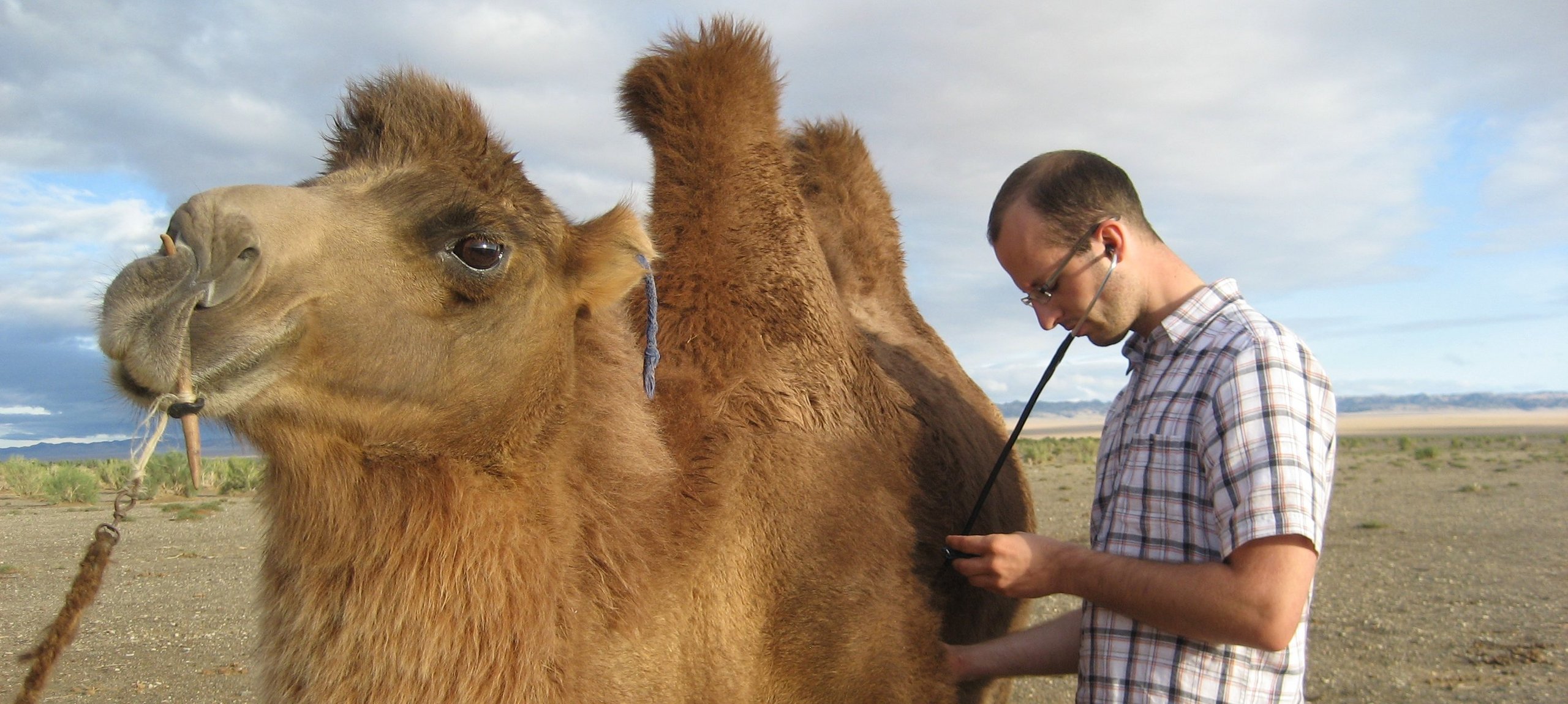- Research Institute of Wildlife Ecology /
- Research /
- Genetics /
- One Health Genomics /
- Genomic Roots of Domestication and Selection in Old World Camels
Since their domestication, dromedaries have played a key role in the spread and maintenance of civilizations. With their adaptability to the most extreme environmental conditions, they have surpassed all other mammals in arid regions. The potential of these "desert ships" was taken advantage of in caravans traveling on historical routes from the Indian Ocean to the Mediterranean, connecting Asian, African and European cultures. The results of our study reflect this extensive exchange and show an unexpectedly high global genetic diversity in today's dromedaries.
Through the analysis of more than a thousand dromedaries, we have learned that two original maternal lines have been preserved by the domestication process involving at least six female founder animals. This initial diversity is astonishingly high, given the spatially and temporally limited coexistence of wild dromedaries and early domesticated animals on the Arabian Peninsula.
In this FWF project we are investigating the changes that are the foundation of the process of domestication - the adaptation to human habits - by sequencing entire genomes. The aim of this project is to find these genomic traces of selection in domesticated camels through comparison to their wild counterparts. This project is helping us understand the mechanisms underlying the initial domestication processes. Through the discovery of so-called "domestication genes" in camels and their comparison with other pet animals, we are learning more about functional regions in the mammalian genomes in general. Knowledge of the evolutionary history of the Old Testament camels may also contribute to the in situ conservation of the last wild camels as well as to the conservation of the genomic diversity of the most important and most sustainable species in (semi-) arid regions. In view of the challenges of farming sustainably in increasingly dry areas, our results are of great importance to the public. The cost effectiveness of camels, the natural insulin content of their milk and the specific characteristics of the immune system has re-awakened medical-scientific interest in these extraordinary animals.
Project duration 1.3.2012-1.3.2016

